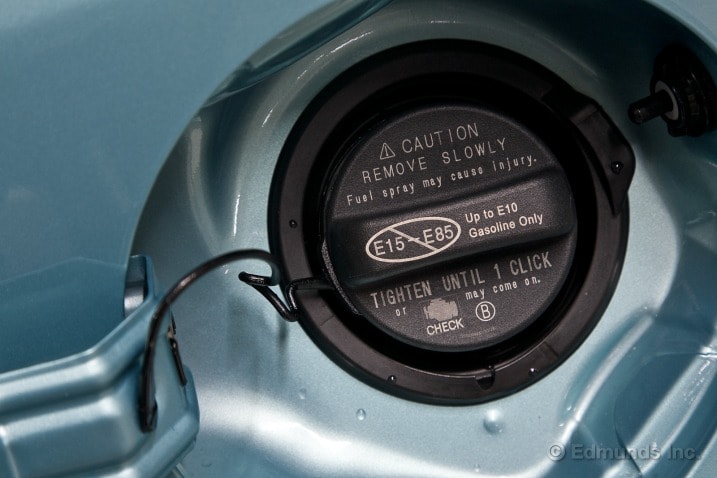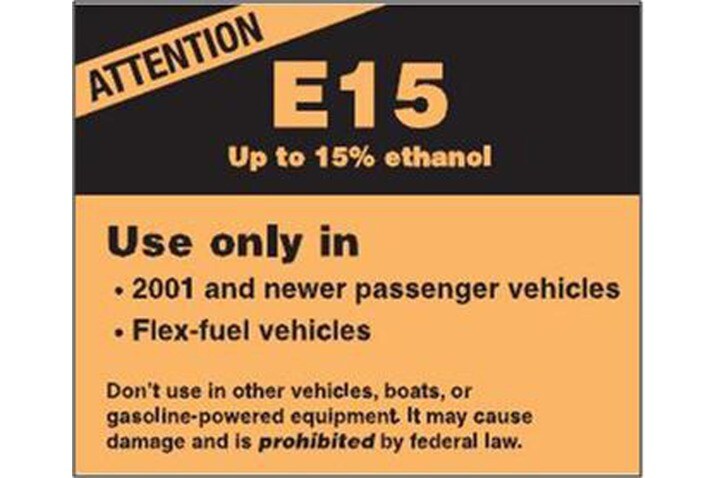Automakers Want More Testing
In their letters, automakers including Ford, General Motors and Toyota say E15 fuel hasn't been studied enough. They are members of the Alliance of Automobile Manufacturers, which represents most major car companies.
At present, BMW, Chrysler, Nissan and Toyota have said that the use of E15 can invalidate their new-car warranties if the fuel causes damage. Toyota has gone so far as to add a warning label on the fuel-filler caps of its models from 2012 onward, stating: "Up to E10 gasoline only."
Toyota has told the EPA that it doesn't believe the agency testing that led to approval of E15 for later models is adequate, says Toyota Motor Sales U.S.A. spokeswoman Cindy Knight. "Vehicles are simply not designed for it."
Ford Motor Co. is a little more accommodating. The automaker is still cautious and supports additional testing of E15's impact on engines and fuel system components, but beginning with the 2013 model year, new vehicles bear a label in the fuel filler area that says blends of up to E15 are acceptable.
Ford supports "the use of biofuels to address climate change and energy security concerns," says Cynthia Williams, fuel policy chief for Ford. But the carmaker does not believe that the potential risks of using E15 have been addressed. Ford doesn't support E15 use in its older vehicles, and owners of the newest Ford models should be guided by the fuel recommendations in their owner manuals, she says.
General Motors Corp. has now approved E15 for its 2012 and newer models and Porsche has approved it for all of its vehicles introduced since the 2001 model year.
"It's rolling slowly, but we're still leaps and bounds ahead of where we were with E10 a year after it was introduced," says Robert White, director of market development for the Renewable Fuels Association. "It took six years for E10 to be included by automakers" as an approved fuel.

